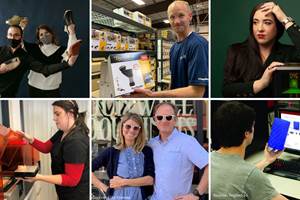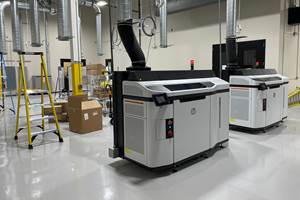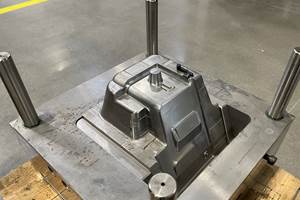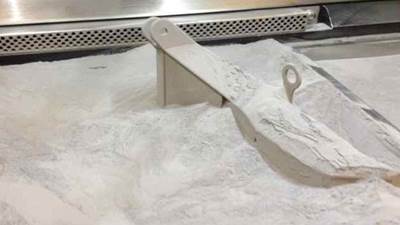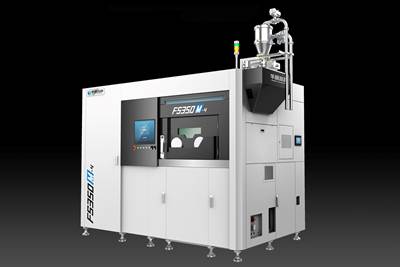AM Center Supports Automotive Supplier's Greener Engine Plan
Automotive supplier Mahle has invested in an additive manufacturing center, saying the technology will support development in thermal management, mechatronics and electronics to produce more environmentally friendly engines.
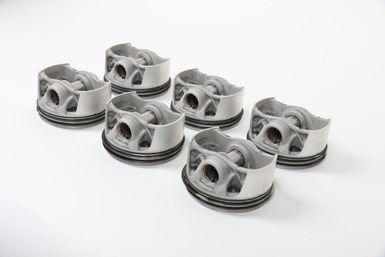
A collaboration between Mahle, Porsche and Trumpf led to the manufacturing of pistons for the Porsche 911 GT2 RS with laser metal fusion. The tests of these pistons proved that the performance was up to the demands of a high-performance sports car. Photo Credit: Mahle
Mahle GmbH, an automotive supplier, is best known in the additive world for a project it undertook in 2020 with Porsche and Trumpf to produce pistons from an aluminum alloy with laser metal fusion for the Porsche 911 GT2 RS high-performance sports car.
The supplier developed this piston using a generative design process, leading to a piston design as much as 20% lighter than one made via casting, the conventional approach — all while using the same proprietary aluminum alloy.
Porsche fitted six of the pistons into the engine of the 911 GT2 TS race car and ran it for 200 hours, of which 135 were at full load.
Evidently, the test results were satisfactory, as Porsche’s project manager Frank Ickinger says “in terms of technology, this is the start of a new chapter for us, which opens up completely new possibilities in design and production.”
For its part, Mahle found the printing to be so beneficial that it has opened an additive manufacturing center at its headquarters in Stuttgart. What is interesting about this development is that Mahle is emphasizing the benefits that additive will provide in relation to environmentally oriented engines, not those for super sports cars.
Michael Frick, chairman of the Mahle management board and CFO, says “the development of new systems and components has to be much faster today than it was a few years ago, especially when it comes to solutions for sustainable CO2-neutral drive systems.
“With our new 3D printing center, Mahle is once again stepping up the pace in its strategic field — for example, e-mobility."
New Facility Details
Mahle’s additive facility has a footprint of approximately 500 square meters. At present there is a single machine, an SLM Solutions 280, which has a work envelope measuring 280 × 280 × 365 mm. The company is working with V2A and V4A steels, as well as aluminum alloys.
Presently there are five people working in the facility, although a Mahle spokesperson says they are supplemented by “an extended team of experts from various departments, in particular simulation and materials experts. Depending on the respective project, extended project teams are added.”
Future Series Production
The success of the pistons for Porsche notwithstanding, the work Mahle is performing is not focused on the company’s engine systems and components operations, but thermal management, mechatronics and electronics.
Dr. Martin Berger, head of corporate research and advanced engineering at Mahle, says that “processes are also being developed in the new center that enable 3D printing in industrial series production based on the strict standards of the automotive industry. This opens up completely new possibilities in product development and manufacturing, because these processes can be used to produce high-performance components that cannot be manufactured using conventional methods.”
Related Content
8 Transformations 3D Printing Is Making Possible
Additive manufacturing changes every space it touches; progress can be tracked by looking for moments of transformation. Here are 8 places where 3D printing is enabling transformative change.
Read MoreWhat Does Additive Manufacturing Readiness Look Like?
The promise of distributed manufacturing is alluring, but to get there AM first needs to master scale production. GKN Additive’s Michigan facility illustrates what the journey might look like.
Read More8 Cool Parts From Formnext 2024: The Cool Parts Show #78
End-use parts found at Formnext this year address various aspects of additive's advance, notably AM winning on cost against established processes.
Read MoreDaimler, OMIC Evaluate Wire-Fed DED for Moldmaking
3D printing a core and cavity on machine from Gefertec, followed by machining, allowed for a complete mold tool to be produced in three days.
Read MoreRead Next
Alquist 3D Looks Toward a Carbon-Sequestering Future with 3D Printed Infrastructure
The Colorado startup aims to reduce the carbon footprint of new buildings, homes and city infrastructure with robotic 3D printing and a specialized geopolymer material.
Read MorePostprocessing Steps and Costs for Metal 3D Printing
When your metal part is done 3D printing, you just pull it out of the machine and start using it, right? Not exactly.
Read MoreBike Manufacturer Uses Additive Manufacturing to Create Lighter, More Complex, Customized Parts
Titanium bike frame manufacturer Hanglun Technology mixes precision casting with 3D printing to create bikes that offer increased speed and reduced turbulence during long-distance rides, offering a smoother, faster and more efficient cycling experience.
Read More
.jpg;width=70;height=70;mode=crop)












